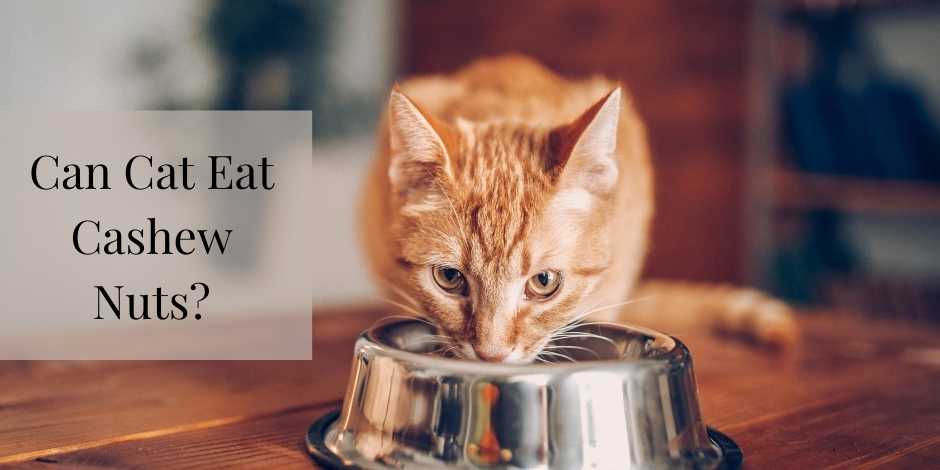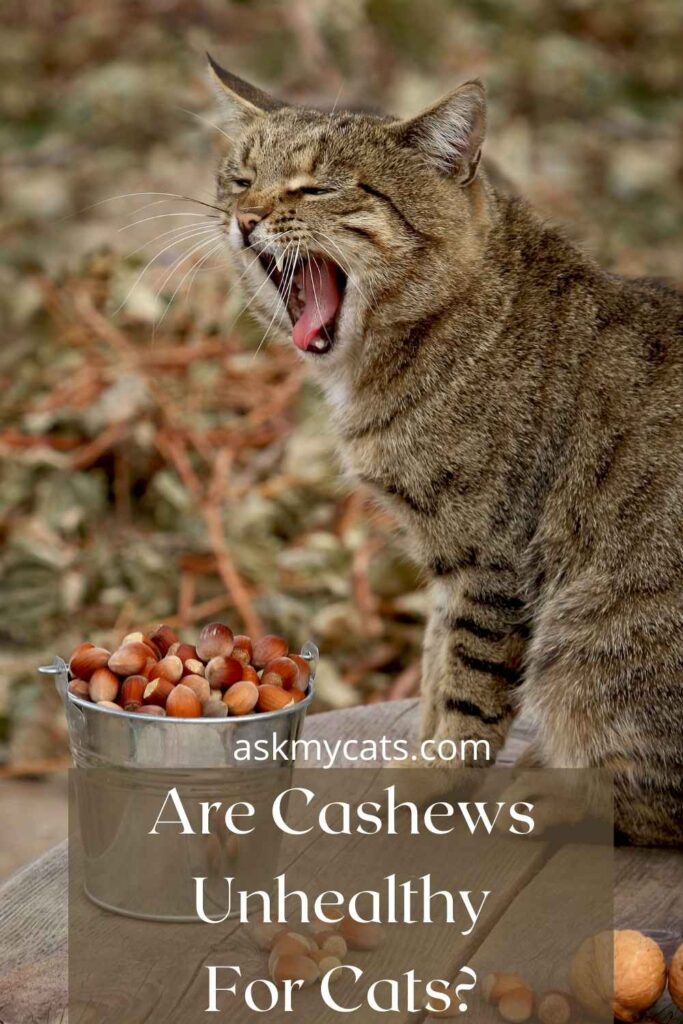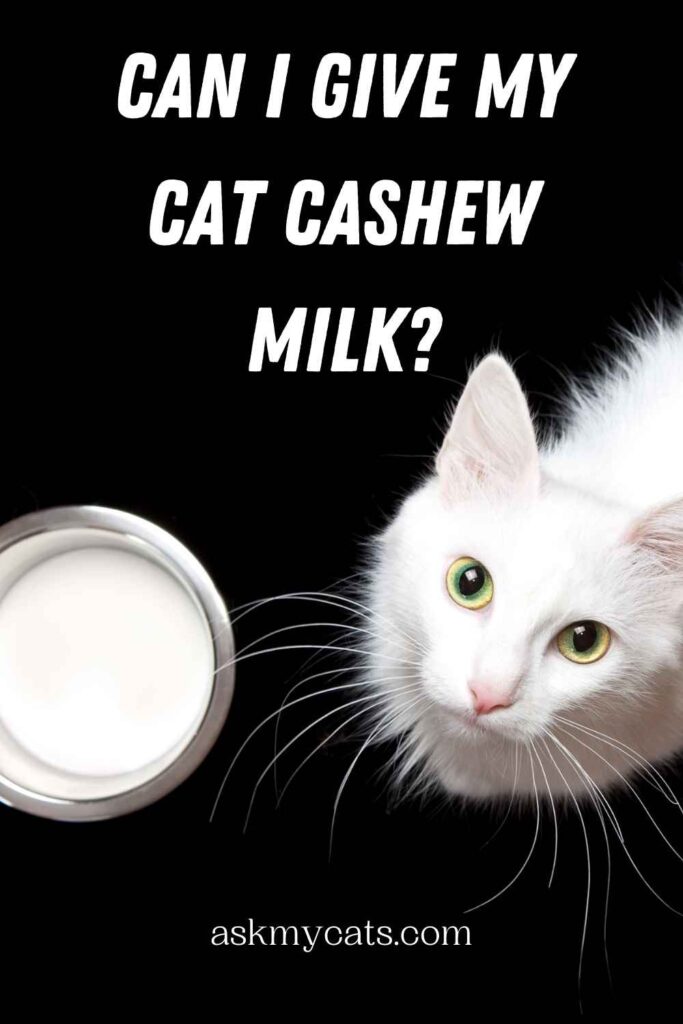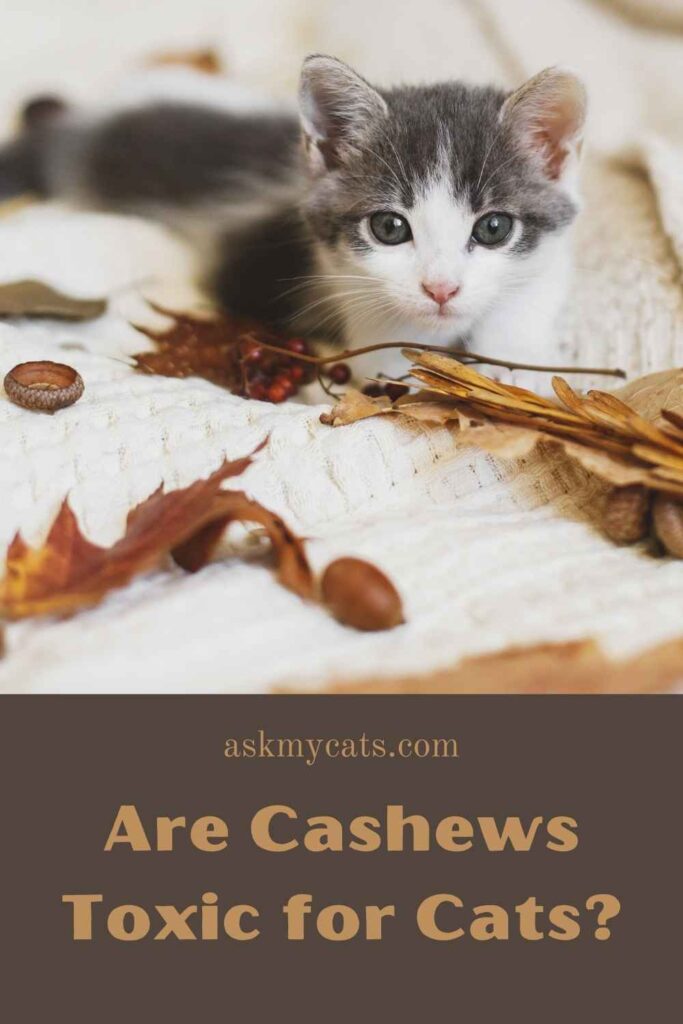Cashews are a great little snack because they are tiny and tasty. Humans adore them and eat them on a regular basis. They seem to be a perfect treat for cats as well, and cats seem to like them. Is it possible to give your cat a taste of cashews?
It’s not uncommon for pet owners to want to feed their animals. The general belief is that if it works for me, it would work for them. However, this isn’t always the case.
You can feed your cats cashews because fortunately, there is no significant health risks associated with cashews. You should feed them to your cat in moderation, but that doesn’t mean you should always do so.
Cashews aren’t very safe for cats, and there are a few things to keep in mind if you’re going to give your pet this delicious human treat.


Give Your Cat the Perfect Day
Get the Free Ebook!
Are Cashews Unhealthy For Cats?
Cashews can be unhealthy for cats because they can cause many harmful diseases for a cat. While cashews are not poisonous to cats, they are not a safe food to feed them on a daily basis.
Since cashews are dangerous for cats, you can only feed them one or two at a time. Let’s look at some of the ways that cashews can damage your cat’s health.

1. High Fat Content
Cats in the wild are likely to consume more lean meats than others. They don’t eat fats too much, and certainly not in the quantities found in cashews.
Since cats don’t have to ingest fats too much in the wild, their bodies aren’t particularly inefficient at it. This means they’ll store more of it, eventually leading to an overweight cat.
Obesity is a significant issue that affects both our pets and humans. Pets should be served a lean diet similar to what they will eat in the wild to help them battle it.
In the wild, cats aren’t supposed to eat vegetables. They’ll only eat any vegetables on special occasions to assist with stomach problems.
Aside from that, their diet is almost entirely composed of beef.
This means that plant-based ingredients, such as almonds, are difficult for cats to digest. In the worst-case situation, it may cause a disturbed stomach and vomiting, but it would require a lot of cashews.
2. High Sodium Content
Although nuts that hasn’t been salted have high sodium content. Cats have no natural salt sources in their diet, but they consume very little sodium actually.
As a result, their bodies are incapable of absorbing large quantities of it.
When a cat consumes a high-sodium food, such as a handful of cashews, it will quickly get dehydrated. And if you just give your cat one or two of these nuts, you must make sure they drink enough of water to prevent dehydration.
If you’re going to feed cashews to your pet, make sure to use the lowest-sodium cashews you can. And brands use no extra salt, while some use low-sodium cashews.
3. Choke In Throat
This is one you might not think about right away, but it’s one of the most dangerous dangers cashews can pose to your pets.
Although we do find it convenient to eat a nut like a cashew, cats do not have the same kind of teeth as we do.
Cats do not eat herbs, rice, starches, nuts, or anything else comparable in the wild. They only consume wild meat, such as that of other species. This means they have teeth designed to consume and consume meat rather than nuts.
We think of cashews as being short, but your cat isn’t even close to that size. To a cat, the little cashew is even bigger, because whether it’s a whole cashew, it may quickly get stuck in his or her airway.
If this occurs, your cat may choke and could die if you do not intervene right away. If you do serve your cat cashews, cut them in half or even smaller bits to avoid choke hazards.
4. Pancreatitis
The worst long-term result of feeding your cat cashews on a daily basis is pancreatitis. This enlargement of your cat’s pancreas would necessitate specialised medical care, which can be both expensive and exhausting.
Fever, appetite loss, and lethargy are some of the signs. It’s a serious issue that you can’t solve on your own.
Can Cats Eat Cashews?
No, Cats are not likely to eat cashews because while cashews are not poisonous to cats, they are not a safe food to feed them on a daily basis. Since cashews are dangerous for cats, you can only feed them one or two at a time.
Cats in the wild are likely to consume more lean meats. They don’t eat fats too much, and certainly not in the quantities found in cashews.
Since cats don’t have to ingest fats too much in the wild, their bodies aren’t particularly inefficient at it. This means they’ll store more of it, eventually leading to an overweight cat.
Are Cashews OK for Kittens?
Is it okay to offer a cashew to a kitten as a reward if cashews aren’t poisonous to cats and can be consumed in moderation?
No, you should not feed a kitten cashew nuts because cats and kittens are not the same thing.
Cats have teeth, even though they don’t have teeth for chewing nuts, grains, berries, or something other than beef. Kittens, on the other hand, lack the required teeth to chew cashews.
Furthermore, kittens’ digestive tracts are not yet mature enough to absorb solid food. And that’s if the cashews make it to their stomachs at all. Since kittens are so thin, a cashew can be a serious choking hazard.
In kittens, even cashew milk can cause an allergic reaction.
Since their digestive tracts aren’t equipped to handle all of the fat, cashew milk would most likely cause a disturbed stomach, but it won’t be catastrophic.
Nonetheless, any cashew-derived food or drink should be avoided by kittens.
Can I Give My Cat Cashew Milk?
Yes, since cashews aren’t toxic to cats, you should give them some cashew milk. You may, though, need to do so with caution.

Cashew milk also has a lot of fat in it, which is bad for your pet. Since it isn’t a normal part of their diet, they have trouble digesting it.
Cashew milk can only be provided as a special treat if you don’t want your pet to get overweight and fat.
This nut milk, though, will not provide a choking threat in the same way as whole cashews will.
As a result, if you want to give your cat a cashew-flavoured treat, cashew milk might be a better option than whole cashews.
Cashew milk is a great substitute for dairy milk, which cats have a hard time digesting due to lactose intolerance.
The one issue with cashew milk is the process of preparation, which leaves very little nutritional content intact in most cases.
As a result, cats should avoid drinking cashew milk. You should offer your cat a variety of protein-rich, lactose-free milk choices. Whiskas Catmilk, low-fat Cat Sip Real Milk Treat, and vitamin-rich Kitten Milk Replacer are only a few examples.
As a result, keep the intake to a bare minimum. Start by feeding a small amount to see if your cat is allergic to it. To be frank, cats may be allergic to milk in the same way as they are to nuts.
The problem is that cats’ stomachs are now very responsive. As a result, any alteration in your cat’s diet has the potential to cause a negative reaction. The stomach needs some time to digest foreign proteins and fats.
Are Cashews Good For Cats?
This is one of the most often asked questions by pet owners. Examining just what cashews are is one way to get a definitive answer to the dilemma.
Cashews can prove to a cat’s nutrition if given in small quantities.
Cashews, also known as cashew nuts, are the nuts provided by a tropical tree of the same name.
Cashew trees also grow cashew apples in addition to cashew nuts. These apples, on the other hand, are less well-known because they’re almost useless outside of the plant’s natural habitat.
Cashew nuts are known for their high content of good fats, which is one of their most appealing qualities. One ounce of raw cashews contains around 12.4 grams of healthy fat.
But, in addition to providing nutritious fat, cashews provide a slew of other health benefits. In reality, nuts are often ranked alongside other foods such as berries, legumes, kale, and other superfoods.
The below are some of the most important minerals and vitamins found in raw cashews, as well as their relative abundance in one ounce of cashews:
| Calories | 157 calories per serving |
| Fibre | 1 g |
| Protein | 5.1 g |
| Carbohydrates | 9.2 g |
| Folate | 7 ug |
| Magnesium | 83 mg |
| Sodium | 3.4 mg |
| Potassium | 187 mg |
| Calcium | 10.4 mg |
| Vitamin E | 0.3 mg |
| Vitamin B-6 | 0.1 mg |
| Vitamin K | 9.5 mcg |
The body receives unique nutritional and health benefits from each of these minerals and vitamins.
Iron and copper, for example, work together to improve red blood cell production and function. As a result, they improve the total body immunity by improving the performance of blood vessels, bones, and nerves.
Cashew nuts are also high in potent antioxidants such as lutein and zeaxanthin. These antioxidants aid in the prevention of a wide range of chronic infections, including heart disease, asthma, obesity, and cancer.
Furthermore, evidence shows that lutein and zeaxanthin function together to enhance vision by lowering the risk of cataracts and other vision-related disorders.
Even, as previously said, the fat contained in cashews is called “healthy fat.” That is to say, there are no chances of weight gain. In the opposite, it lowers the risk of cardiac and lung problems including hypertension and stroke.
Despite all of these advantages, it’s not uncommon to see a cat owner who still wonders if cashews are poisonous to cats.
What Are The Risks Of Long-Term Feeding Of Cashews To Cats?
Feeding cashews to your kitto has a number of long-term consequences. The first is ionised sodium poisoning. Heart cancer, pancreatitis, and multiple organ failure are also threats. Not to mention stomach problems such as chronic diarrhoea.
Given the potential risks of cashews, it’s best to keep them away from your feline companion.
Cats, on the other hand, have a habit of coming up behind our backs and stealing our food. You might be considering what to do if your cat eats cashew nuts if this happens.
Keep an eye out for stomach upset and the other gastrointestinal symptoms we’ve listed. Even, if you believe that the amount of cashews consumed can cause the cat to become chronically ill, make an appointment with your veterinarian as soon as practicable.
To begin with, cashews are high in additives that are only beneficial to humans, not cats. Second, the high fat content of these nuts can pose a number of health risks. There are also several allergy issues to be aware of.
Are Cashews Toxic for Cats?

The terms “poisonous” or “toxic” do not appear in this context. However, neither are the terms “safe,” “essential,” or “advantageous.”
Cashews are not very much toxic since it contain 18% protein, 30% carbohydrates, and 44% fat per 100 grams with a smidgeon of vapour.
I see a lot of fat- and protein-rich material here. Don’t you think so?
For felines, though, this is not the case. Cats need more protein, less carbohydrates, and a small amount of fat in their diet.
Proteins for cats should also be high in amino acids. It’s no surprise that animal protein seems to be a better option for cats. It also contains a significant amount of amino acids.
I’m not arguing that cashews are high in minerals and vitamins. However, their high fat content causes digestion issues in cats. Let’s not forget about the long-term dangers of obesity.
When it comes to cats, there’s no doubt that cashews have hollow calories. Carrots and bananas are healthier options. Cashews are unhealthy as compared to their calorie density.
The same can be said for other nuts. These calories soon add up. As a result, your cute feline’s odds of being obese increases.
Frequently Asked Questions
What nuts are toxic to cats?
Macadamia nuts should preferably be kept out of sight of your cat. In cats, this form of nut can induce drowsiness, vomiting, hyperthermia, and tremors. Some nuts, such as walnuts, can be poisonous to cats.
What are the disadvantages of eating cashew nuts?
When used as a drug, it is POSSIBLY SAFE at up to 11% of total calories in the diet. Cashews can cause allergic reactions in some people. In certain people, cashew nuts can cause bloating, constipation, weight gain, and joint swelling. However, these side effects are uncommon.
Final Words
In the end, cashews aren’t good for your pet, but in small amounts, they shouldn’t be a challenge. However, if fed to your pet on a daily basis, they may be harmful to their welfare.
Cashews are rich in sugar, which cats have a hard time digesting because they don’t have any high-fat sources in their diet.
Cashews have a high sodium level as well. Cats, once again, are unable to absorb this because their natural intake is low in sodium.
Finally, if left whole, cashews have the ability to choke your pet. If you’re eating solid cashews, make sure to chop them up first.
You should also use cashew milk, which is lactose-free and does not cause choking.
Let me know in the comments section below about your experiences!
